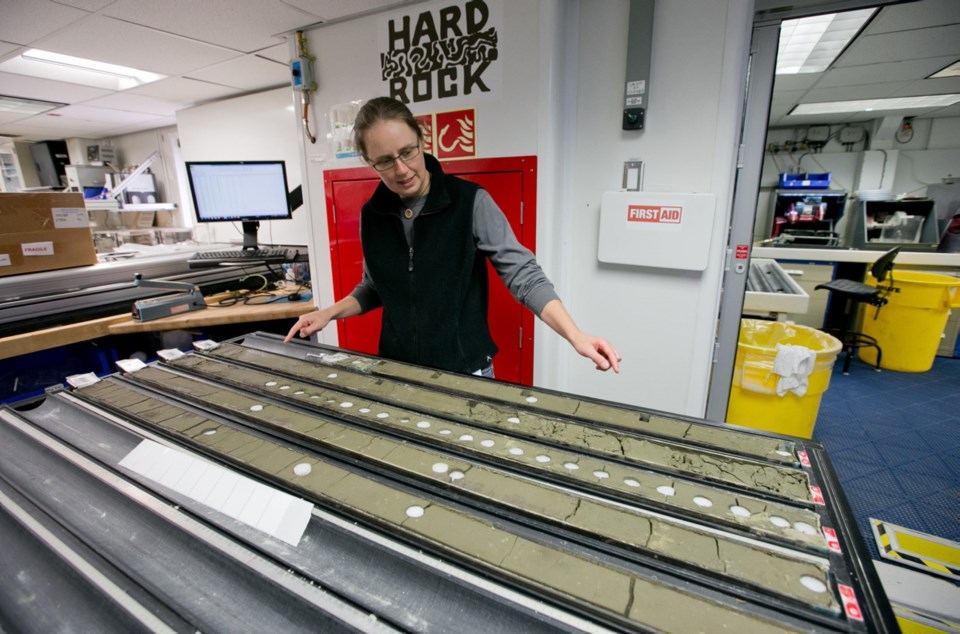Sarah Thornton is planning to bring some hands-on experience back to her students, as one of two Canadian educators aboard a scientific ocean drilling vessel.
The “School of Rock” is a professional development program hosted aboard the JOIDES Resolution, where 18 teachers are using the same laboratories, tools, samples and data as researchers aboard the ship.
It means Thornton, senior lab co-ordinator at the University of Victoria, is trading her regular routine for an intensive new one. She’ll spend 10 days mimicking the 12-hour shifts scientists endure on two-month expeditions, but with a portion of time dedicated to explorations about teaching science.
“There’s a lot of online [teaching] resources,” she said. “But it’s the hands-on that makes all the difference. Now I’ve actually touched stuff that was put on the bottom of the ocean thousands of years ago.”
Her students, of course, will have to live vicariously through her, as the program is directed at educators.
But Thornton said she’ll be bringing back slides filled with real-life samples collected by the ship, which can drill as deep as 450 metres into sediment.
That sediment — which holds keys to biodiversity, climate change and plate tectonics — could be hundreds of millions of years old, she said.
“This is showing me all sorts of ways that I could really bring [ocean drilling programs] into the classroom,” Thornton said.
She’s already thinking of ways to change how she teaches her first-year lab group, which currently studies ocean drilling data from the Saanich Inlet.
“Instead of just looking at a book with numbers, they can actually put the slides in a microscope and do their own counts and we can talk about what’s going on,” she said.
The sediment being studied by educators in the School of Rock has already been analyzed by researchers during expeditions, which has contributed to knowledge about a wide variety of phenomena — from earthquakes to the history of extinctions, said principal Jennifer Collins.
“Some of our fundamental understandings of how Earth works come from this program,” she said.
It costs $100,000 per day to run the ship, according to Collins, which is why researchers work around the clock when aboard.
The School of Rock began in 2005 and now has a large database of teaching material in its database. Past participants have created educational videos, graphic novels and other creative teaching forms.
It usually hosts one group of educators per year.
However, this year, there will be two.
While most groups are dominated by high-school, middle-school and university-level teachers, past groups of educators have been more specialized.
The School of Rock has hosted informal educators, an audience of undergraduate faculty from minority-serving institutions and a group dedicated to online education.
Thornton — part of a 17-member group, including a high-school teacher from Whitehorse — applied for the program to complement her area of expertise in water column oceanography.
“I do stuff up at the surface of the water, but I’ve never really learned about the botton of the ocean, beyond a few classes during my graduate degree,” she said.
The program is funded by the U.S. National Science Federation. “Funding for the program comes from the U.S.,” Collins said.
“But, because we’re in Canada, we left two spots for Canadians.”
The ship is docked at Ogden Point for the duration of the training, from April 1 to 10.
It resumes regular duties May 20.



